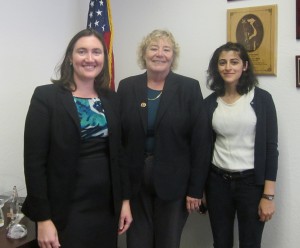The House begins consideration of HR 6 the 21st Century CURES Act today (Thursday July 9th) This bill has bipartisan support and would establish an $8.75 billion Innovation Fund to provide NIH with an additional $1.75 billion a year and the FDA an additional $110 million for the next five years. The money for this Innovation Fund currently would come from mandatory spending instead of discretionary spending, which can get lost in the annual budget fights. The House Energy and Commerce Committee has already identified money for this fund from profits from selling some oil from the Strategic Petroleum Reserve (see this FAQ for an explanation of the funding) and the Congressional Budget Office has estimated that this bill will reduce the federal deficit by more than $500 million over the next 10 years.
Rep. Dave Brat (R-VA) plans to offer an amendment to make the NIH Innovation Fund come from discretionary funding. Since this would defeat the purpose of the Innovation Fund, please ask your Representative to oppose Amendment #29 to the 21st Century Cures Act.
You can find your Representative’s number here: http://www.house.gov/
Below is a sample script written by the American Physiological Society’s Science Policy Office:
Congressional offices expect to get phone calls from constituents expressing views for and against pending legislation. Therefore, you can explain the reason for your call to the receptionist.
WHAT TO SAY:
“My name is ___________, and I am a constituent of Rep. ________.”
“I support the 21st Century Cures Act because it will increase funding for life-saving biomedical research at the NIH. The bill is H.R. 6.
“Please ask Rep.______ to oppose Brat amendment #29 because it will undermine the Innovation Fund that is meant to help NIH meet crucial health challenges.”
Further talking points are provided below, but please call TODAY.
MORE REASONS TO SUPPORT THE BILL:
- Provides funding for life saving research and treatment and contributes to the economic engine of research and development
- Identifies funding to “offset” the cost of the Innovation Fund and reduces the federal deficit by more than $500 million over the next 10 years (according to the Congressional Budget Office)
- Maintains the Appropriations Committees as gatekeepers to set funding levels annually for biomedical priorities
For more about the bill, see the House Energy and Commerce committee’s website http://energycommerce.house.
